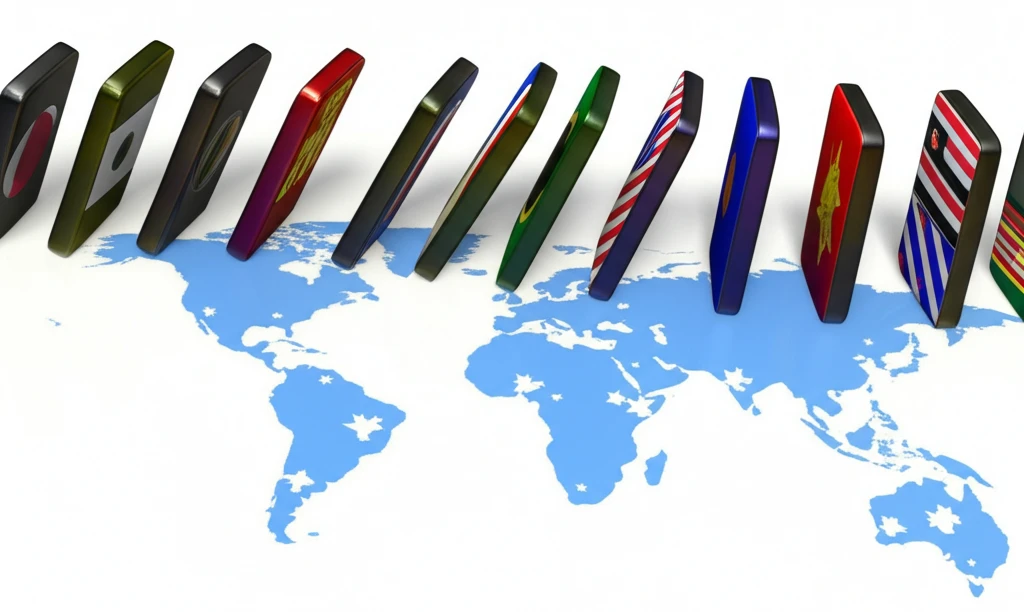
Beyond Borders: How 'Spillover Effects' Reshape Global Economics
"Discover how interconnected economies influence each other, sometimes unexpectedly, and what it means for your financial future."
Imagine a pebble dropped into a pond. The initial splash creates ripples that extend far beyond the point of impact, affecting the entire surface of the water. Similarly, in the world of economics, actions and events in one area can generate 'spillover effects' that resonate across different regions and industries. These effects, often unforeseen, play a crucial role in shaping the global economic landscape.
Spillover effects occur when an economic activity or policy in one country or sector impacts another. These can be positive, like technological advancements boosting productivity worldwide, or negative, such as a financial crisis in one nation triggering economic downturns globally. Understanding these dynamics is essential for businesses, policymakers, and individuals to navigate the complexities of today's interconnected world.
This article delves into the fascinating world of spillover effects, exploring their mechanisms, real-world examples, and implications for your financial well-being. We'll uncover how these interconnected forces are reshaping the global economy and what you can do to stay ahead of the curve.
What Are Spillover Effects and Why Do They Matter?

At its core, a spillover effect is an externality – a cost or benefit that affects a party who did not choose to incur that cost or benefit. In economics, this means that the actions of one economic agent (a country, a company, or even an individual) have unintended consequences on others. These consequences can manifest in numerous ways, from trade and investment flows to technological innovation and policy changes.
- Trade and Investment: Changes in tariffs, trade agreements, or investment policies can significantly impact trading partners.
- Financial Contagion: A financial crisis in one country can spread rapidly to others through interconnected financial markets.
- Technological Innovation: New technologies often diffuse across borders, boosting productivity and economic growth in adopting countries.
- Policy Coordination: The effectiveness of domestic policies can be influenced by the policies of other countries, requiring international cooperation.
- Environmental Impacts: Pollution and climate change are global issues with spillover effects that affect all countries.
Navigating the World of Spillovers
As the global economy becomes increasingly interconnected, understanding spillover effects is no longer a luxury but a necessity. By recognizing these dynamics, businesses can make more informed decisions, policymakers can design more effective policies, and individuals can better prepare for the challenges and opportunities of a rapidly changing world. Keeping informed, staying agile, and embracing international cooperation are key to thriving in a world shaped by spillover effects.
